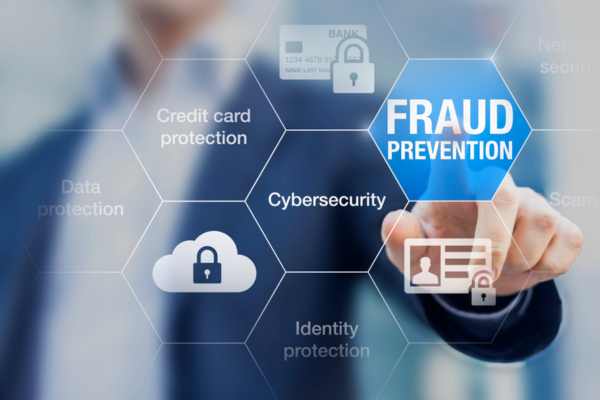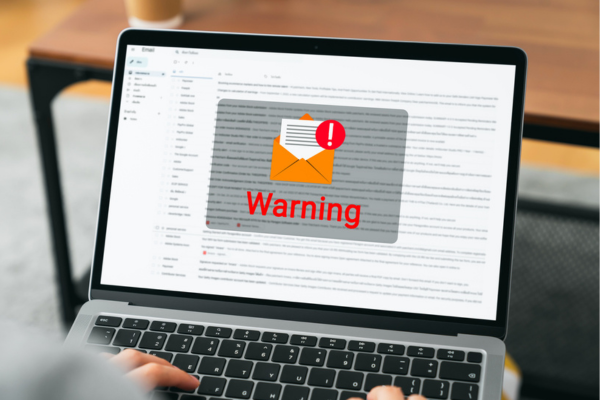
The First National Bank of Raymond will never:
- Contact you requesting your personal or account information via phone, email, or text message
- Ask for your debit card PIN for any reason
- Ask for your Online Banking login information
- Ask you to click on a link to remote into your computer or mobile device
- Contact you via email regarding sensitive financial information
If you receive a suspicious phone call, text, or email asking for your personal or confidential information – do not respond.
Immediately contact us at 217-229-3701.
Spot a Scam with these Red Flags
Misspelled Words, Incorrect Grammar, or Suspicious URLs
Pressure, Urgency or Fear-inducing Language
Requests for Personal Info, PINs, Passwords
Payment by Gift Card, Wire, Venmo

Avoiding Tech Support Scams
Below is advice from the Federal Trade Commission's website:
Two Things To Know To Avoid a Tech Support Scam
1. Legitimate tech companies won’t contact you by phone, email, or text message to tell you there’s a problem with your computer.
2. Security pop-up warnings from real tech companies will never ask you to call a phone number or click on a link.
Phone calls
Tech support scammers call and pretend to be a computer technician from a well-known company. They say they’ve found a problem with your computer. They typically ask you to give them remote access to your computer and then pretend to run a diagnostic test. Then they try to make you pay to fix a problem that doesn’t exist.
If you get a phone call you didn’t expect from someone who says there’s a problem with your computer, hang up.
Pop-up warnings
Tech support scammers may try to trick you with a pop-up window that appears on your computer screen. It might look like an error message from your operating system or antivirus software, and it might use logos from trusted companies or websites. The message in the window warns you about a security issue on your computer and tells you to call a phone number to get help.
If you get this kind of pop-up window on your computer, don’t call the number. Real security warnings and messages will never ask you to call a phone number.
Common Scams
Delivery Scams
- Shipping companies often provide updates on the status of orders. Knowing this, scammers send phishing emails and texts pretending to be from companies like USPS, FedEx, and UPS to lure us to phony web pages and get us to share personal information. Look closely at delivery notifications and email updates. Don't click on links or reply. Remember, UPS and FedEx won’t ask for personal or financial information. To be safe, always track your packages through the carrier's official website.
- Receive a package you didn't order or expect? It may be a scam! Scammers are sending packages with notes urging you to scan a QR code in order to see who sent the package or how to return it. Do not scan the QR code! The QR code is a way for scammers to steal your personal information or gain access to your mobile phone.
Social Media Scams
- Fake Online Stores: Popular, sold-out items suddenly appear in ads. If an item is sold-out in box stores and reputable online stores, then the websites with availability are likely scams trying to obtain your personal and financial information.
- Online shopping provides criminals with an opportunity to trick you into paying for goods and services that either don't exist or are of terrible quality. After seeing an item listed in your ads for days, you order the item. When it arrives it doesn't resemble what you ordered, or it may not show up at all. Tip: Only buy from reputable merchants and always check reviews. Regularly monitor your financial statements for unauthorized or suspicious transactions.
Public Wi-Fi
Public Wi-Fi is available just about everywhere from the local coffee shop to the hotels and airports you visit while traveling. While it's easy and convenient to purchase items from anywhere when you're on your phone or on your laptop, it poses security risks. Protect yourself and your accounts by only making purchases on secure Wi-Fi networks where your personal information isn't shared with scammers looking to steal a deal.
IRS Scam
Here are five ways to know it’s a scammer. The IRS will NEVER:- Call to demand immediate payment, nor will they call about taxes owed without first having mailed you a bill.
- Demand that you pay taxes without giving you the opportunity to question or appeal the amount they say you owe.
- Require you to use a specific payment method for your taxes, such as a prepaid debit card or gift card.
- Ask for credit or debit card numbers over the phone.
- Threaten to bring in local police or other law enforcement groups to have you arrested for not paying.
Romance Scam
Romance scams are deceptive schemes where criminals use fake online identities to build romantic relationships with victims, often on dating apps or social media, and then manipulate them into sending money. These scammers rely on gaining your trust to take advantage of you financially. For more information about this type of scam, visit the U.S. Secret Service website by clicking the "Learn more" button below.
Charity Scams
Many people give at the end of the year and scammers are targeting the season's generosity by creating fraudulent charities. Don't let scammers stifle your charitable spirit. A little research can ensure your contributions are reaching the intended reputable recipients. If you are uncomfortable or feel pressured to send money, STOP! Chances are you are being scammed.
